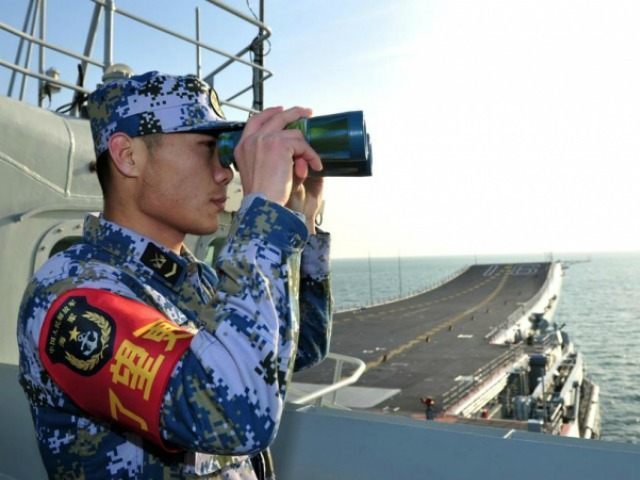India, Japan, and Australia had a historic trilateral meeting in New Delhi this week, where diplomats from each nation discussed growing concerns over what they characterize as “aggressive” posturing on China’s part.
“It’s the pace and scale of Chinese reclamations [island construction projects] which is causing some anxiety in the region. This is something we’ve expressed publicly, and ASEAN countries have expressed,” top Australian diplomat Paul Varghese said.
Japanese representatives, in turn, called their dispute with China over the Senkaku Islands a matter of “great security concern.”
Indian officials also expressed concerns over freedom-of-movement restrictions China has implemented. Not only that, but after insurgents killed 18 Indian soldiers in the Manipur province, Indian military officials are claiming that the terrorists are linked to the Chinese government. However, the Chinese Foreign Ministry disputes this.
Overall the mood coming out of the New Delhi trilateral meetings is one of growing anxiousness over Chinese ambitions in the Indian Ocean, Pacific Ocean, and South China Sea. In regards to this new Chinese aggression, “all the countries are on the same page,” the Japanese Minister of Foreign Affairs, Akitaka Saiki, told reporters in New Delhi. Varghese, however, was careful to say that it would be a mischaracterization of the talks to call them “anti-China,” and that the three countries are not interested in ganging up on the communist superpower. Instead, Varghese simply said that India, Japan, and Australia are “three countries… with a lot to gain from cooperation.”
While the United States was not represented at these meetings, U.S. Defense secretary Ashton Carter earlier condemned China’s new direction in the region, especially the land reclamation project, which he called “unprecedented.” Many fear that China will use those artificial islands as military installations to project power across the South China Sea.
Sources within the Indian Navy told media that after these trilateral talks, trilateral naval exercises among the three major Pacific democracies are a strong possibility, as all three have prioritized stronger security ties.
Economic issues were also discussed at the meetings. Ever since Narendra Modi was elected Prime Minister, India has been seen as having a new “open for business” attitude. Japan’s Prime Minister, Shinzo Abe, has always been cooperative with Modi and supportive of trade policies seen as mutually beneficial, and now Australia is cementing ties with India.
“We are certainly finding a more responsive and sympathetic attitude from the [Indian] government in the past year, and Modi’s emphasis on getting things done is registering with the bureaucracy,” Varghese told an Indian publication.

COMMENTS
Please let us know if you're having issues with commenting.